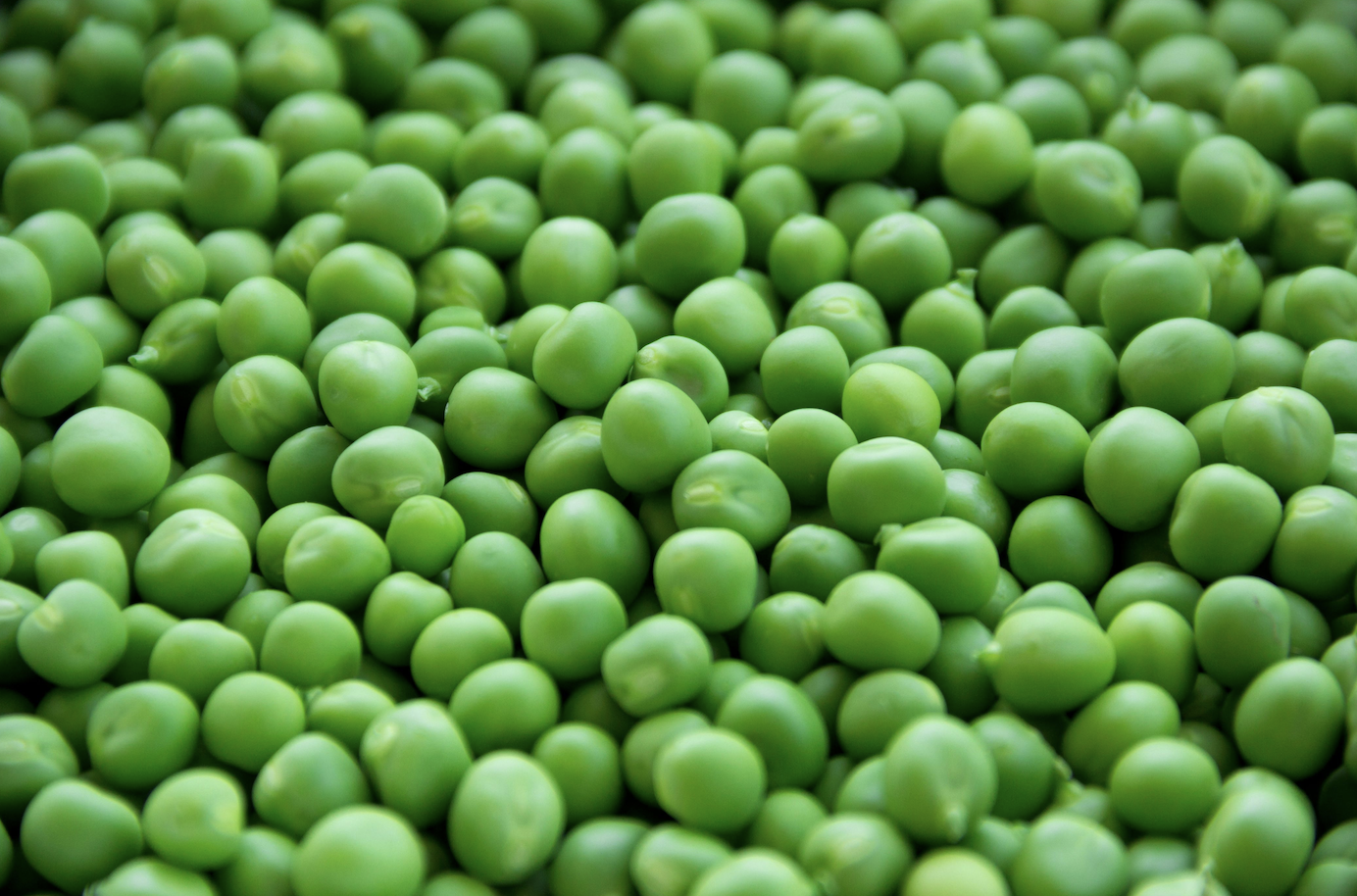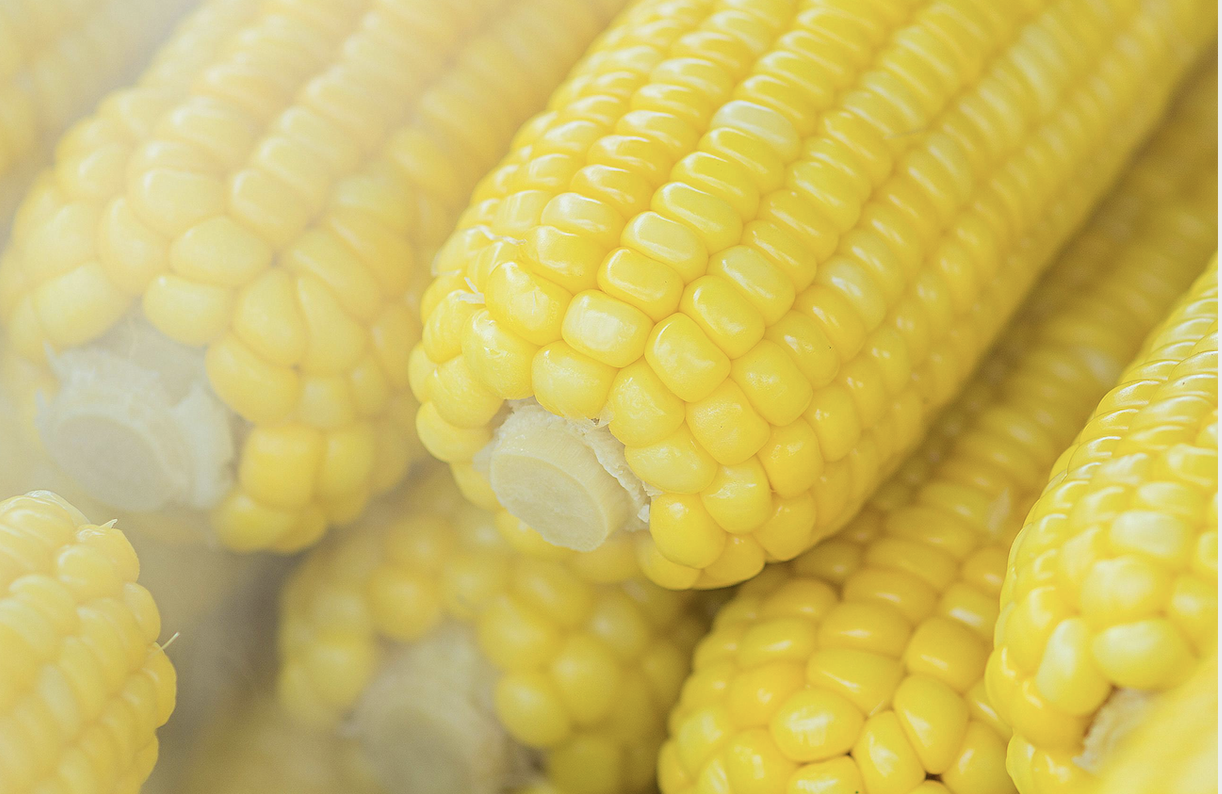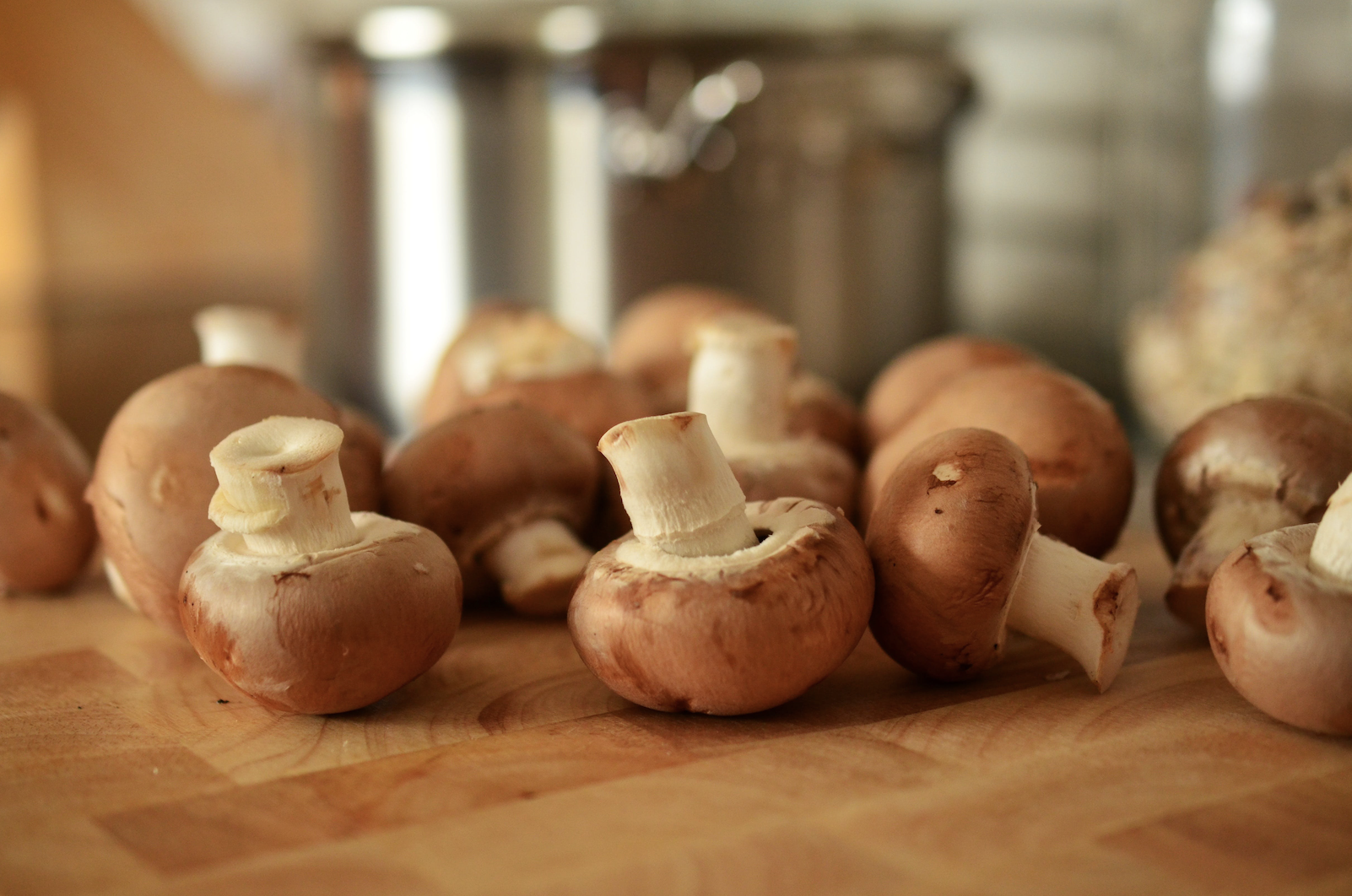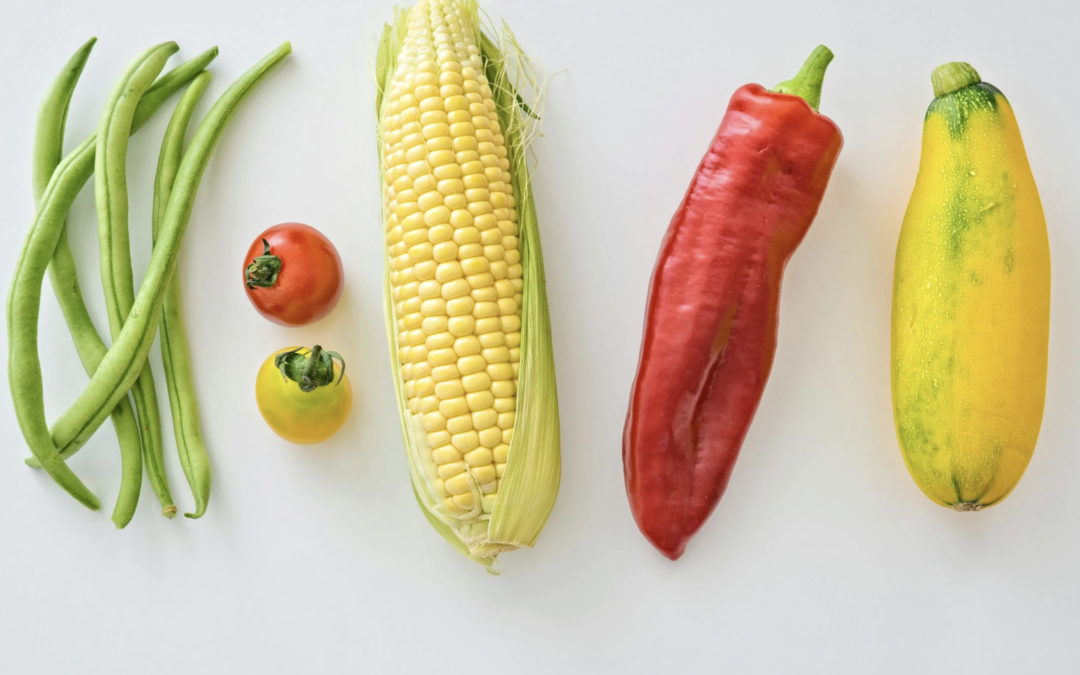
When people say vegetables, protein is the last thing that comes to mind. In fact, hard-core carnivores and staunch anti-vegans will use this as an ammunition in their critique of vegan diets.
But here’s the truth: vegetables are not only packed with potassium, dietary fiber, folate, Vitamin A, Vitamin C, and all those yummy antioxidants – they’re also rich sources of protein.
There are plenty of high-protein vegetables you can add to your diet each day and no doubt veggies are healthy sources of protein. Below is a compilation of some of the leading sources of protein derived from plants.

1. Green Peas
1 cup: 8 g protein, per the USDA
Pass the peas, please. These small green balls are not to be underestimated, they’re compact, mighty, and are nutritional powerhouses. Green peas are high in nutrients, fiber, antioxidants, iron, and can not only match the protein content of two boiled eggs, it has triple the amount. What’s more, green peas are one of the most accessible veggies in the world – they’re affordable, easily available in the supermarket, and could come in many forms– fresh, canned or frozen.
2. Spinach
1 cup: 6 g protein, per the USDA
When discussing protein-rich vegetables, spinach claims the spotlight. Boasting a substantial protein content of 3.6 grams per cup, spinach is not only a protein powerhouse but also a rich source of vital nutrients such as iron, magnesium, and calcium. It’s also abundant in dietary fiber and antioxidants, solidifying its status as a nutrient powerhouse, and also Popeye’s favorite. Spinach goes well with just about anything, toss into an egg omelet, blend into a smoothie, make a soup or a dip. For Filipinos, finding fresh spinach might be a challenge in supermarkets, only select groceries offer this. So a good option is to buy them frozen.
3. Artichokes
1 cup: 4.8 g protein, per the USDA
Like green peas, these pinecone-shaped vegetables are often underrated. Unknown to many, artichokes are swimming in nutrients and antioxidants, and are particularly rich in fiber(lots!), potassium, folate, magnesium and vitamin C. Artichokes make great additions to your kitchen staples too. Enjoy it roasted with savory herbs, add them to dips, salads, pizzas and soups…the limit is your imagination.

4. Sweet Corn
1 cup: 4.7 g protein, per the USDA
Sweet corn may come as a surprise to many who regard corn as a starchy vegetable. But despite first impressions, corn could pull a lot of weight in terms of providing protein as a plant-based source. A definite plus? Corn is delicious, and makes a great ingredient for just about anything in your kitchen arsenal. Try this yummy corn and chickpea fiesta salad.
5. Avocadoes
1 cup: 4.6 g protein, per the USDA
The avo-ficionados must be smiling right now. That’s right, this creamy, buttery vegetable (or fruit, depending on how you’re using it) is also a great source of protein. Relish this fact, the next time you order for yourself an avocado toast.
(READ MORE: Amazing Avocadoes: Benefits and How to Eat Them)
6. Asparagus
1 cup: 4.3 g protein, per the USDA
No vegetable epitomizes springtime more than the asparagus. Not only it it a favorite vegetable for chefs and home cooks alike who love its tender buttery flavor with a bit of sweetness, it also happens to contain protein, which our body needs for daily functioning. Apart from this, asparagus is low-calorie, contains many beneficial nutrients, and is a good source of an antioxidant called riboflavin, essential is cell regeneration.
7. Brussel Sprouts
1 cup: 4 g protein, per the USDA
Much love for this chunky vegetable, that’s so easy to cook! Simply toast it in the oven with olive oil, garlic, parmesan and some salt and pepper and you’re good to go. Like many of the veggies on this list, brussels sprouts offer a rich array of minerals, vitamins, and notably, protein! Brussels sprouts are swimming in vitamin K, crucial for blood clotting and bone health, as well as vitamin C, vital for bolstering the immune system, facilitating tissue repair, and enhancing iron absorption.

8. Mushrooms
1 cup: 4 g protein, per the USDA
There’s so much about mushrooms to love and treasure. Not only are they umami or flavor bombs by nature, but they’re also packed with amazing nutrients, such as protein. Also, because of its unique flavor profile, mushrooms are a favorite ingredient among vegans and vegetarians, who are fond of making mushroom pasta, mushroom burgers and for those who cook Asian, mushrooms make an excellent meat substitute for many dishes that go with rice like adobo (Filipino) and beef rendang (Indonesian).
(READ MORE: Mushrooms: More Than Menu Magic)
9. Kale
1 cup: 3.5 g protein, per the USDA
Kale has sealed its place in the culinary world for being a great addition to green smoothies, as well as dips and pastas. But did you also know it makes a great source of protein too? Kale offers an abundance of nutrients that support heart health, including potassium, fiber, folate, and calcium. It’s everything you’ll ever ask for in a vegetable, really. If you’re not fond of its raw form, fret not. There are a lot of kale chip varieties on the market. However, be mindful of the additives they used including oil, so the health goodies you’ll be getting might not be as good as the fresh ones.
10. Potatoes
1 cup: 3 g protein, per the USDA
Disregard any notion suggesting that potatoes lack nutritional value—it’s far from the truth. Sure, it’s a starchy vegetable, but it also comes loaded with antioxidants, and vitamins and minerals like Vitamin C, B6 and potassium. Plus, they taste amazing! Potatoes are also great side dishes for all of our favorite dishes. It gets a pretty bad rap because of the way potatoes are usually used, as in French fries. But if you make oven-roasted potatoes or pair them with other nutritional powerhouses, you’ll fall in love with potatoes. Also, note that it’s important to leave the skin on potatoes, if possible.
–
While vegetables may not be the first thing that comes to mind when you think of protein sources, many pack a surprising punch in this department.
By incorporating protein-rich vegetables into your meals, you’ll discover the wonders of these nutritious ingredients and embark on a journey toward enjoying well-balanced and nutrient-dense meals. So, go ahead and discover these high-protein veggies and have fun experimenting in the kitchen.
Tags



0 Comments